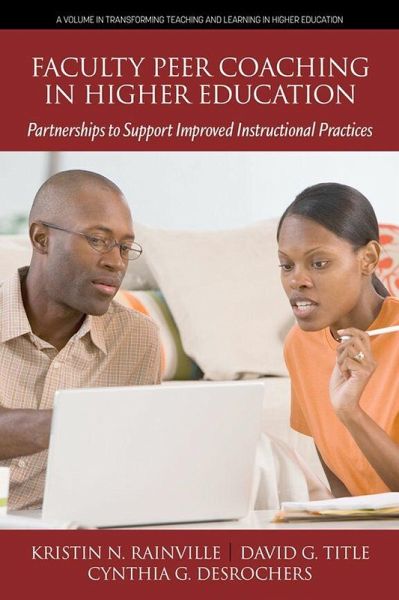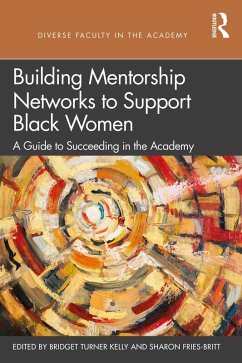
Faculty Peer Coaching in Higher Education (eBook, PDF)
Partnerships to Support Improved Instructional Practices
Versandkostenfrei!
Sofort per Download lieferbar
80,60 €
inkl. MwSt.
Weitere Ausgaben:

PAYBACK Punkte
0 °P sammeln!
Many of the current challenges facing institutions of higher education require a shift in thinking, practice, and approaches to change. The changing nature of college students, along with increased emphasis on student learning outcomes, have institutions seeking to effect improvements in the instructional practices of faculty members. Establishing a robust model of faculty peer coaching can accelerate improvement efforts that strive to create engaging higher education classrooms centered on inclusive and equitable teaching practices, which more effectively meet the needs of an increasingly div...
Many of the current challenges facing institutions of higher education require a shift in thinking, practice, and approaches to change. The changing nature of college students, along with increased emphasis on student learning outcomes, have institutions seeking to effect improvements in the instructional practices of faculty members. Establishing a robust model of faculty peer coaching can accelerate improvement efforts that strive to create engaging higher education classrooms centered on inclusive and equitable teaching practices, which more effectively meet the needs of an increasingly diverse student body.Informed by research and experience, this book is a guide to developing, launching, and refining faculty peer coaching initiatives in higher education with the goal of improving instructional practice and student learning outcomes. Peer coaching is a collaborative, reciprocal practice where faculty members observe, reflect, and improve their instructional practices leading to increased learning for all students. Research has shown that peer coaching can positively impact teaching practices, especially when coupled with other professional learning. This book provides a rationale for peer coaching as an effective strategy for faculty development, outlines a model for peer coaching, and supplies readers with support in the creation of a robust peer coaching initiative in institutions of higher education. Peer coaching has the potential for significant culture and community change for faculty members which can lead to improved student learning.ENDORSEMENTS:I was privileged to read an early draft of this book, and I hadn't turned many pages before I knew I had to offer a peer coaching program in the very next semester. Faculty response was unanimous: Thank you for this experience. I learned so much, and I want to continue. I sure wish I'd had this book when I started in faculty development! I was trying to help a department implement formative peer review of teaching, to not much avail. Now I realize that what we really wanted was peer coaching. - Victoria Bhavsar, California State Polytechnic University PomonaHow can I be a better teacher? What can I do to ensure my students are learning and engaged? If you have ever asked yourself these types of questions, then this is the book for you. Infused with extensive expertise and research-based practices, Rainville, Title, and Desrochers provide proven strategies and approaches to peer-coaching that will change how we teach, engage as colleagues, and ultimately improve instructional practices. Helping the reader develop a climate of trust, respect, and support, the authors provide scaffolded processes that will generate leadership development as well as greatly enhance our knowledge and ability to be effective teachers and mentors. A timely read for the changing world of college students and higher education. - George J. Petersen, Clemson UniversityCan you believe that three professors induced a college faculty to meet in pairs to discuss and enhance their teaching? Well, they did. The bane of professional learning is privatism in teaching, and professors normally work in well-fortified silos. Sharing thoughts about teaching and curriculum brings colleagueship to a new level and elevates the socio-professional environment of the institution. These folks demonstrated that it can be achieved. - Bruce Joyce, Saint Simons Island, Georgia
Dieser Download kann aus rechtlichen Gründen nur mit Rechnungsadresse in A, B, BG, CY, CZ, D, DK, EW, E, FIN, F, GR, HR, H, IRL, I, LT, L, LR, M, NL, PL, P, R, S, SLO, SK ausgeliefert werden.













